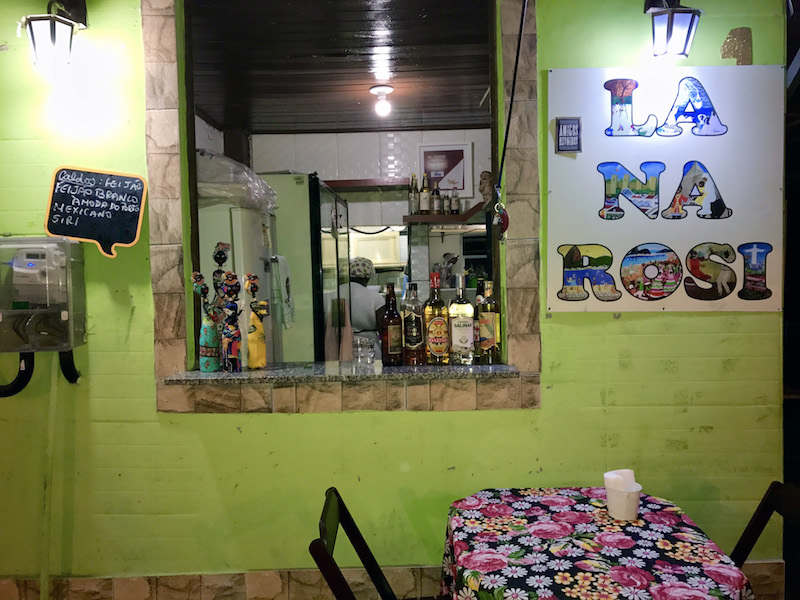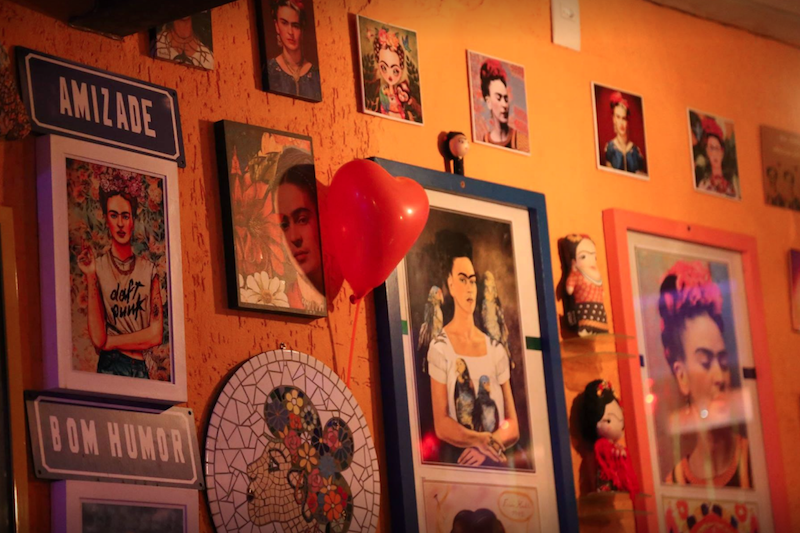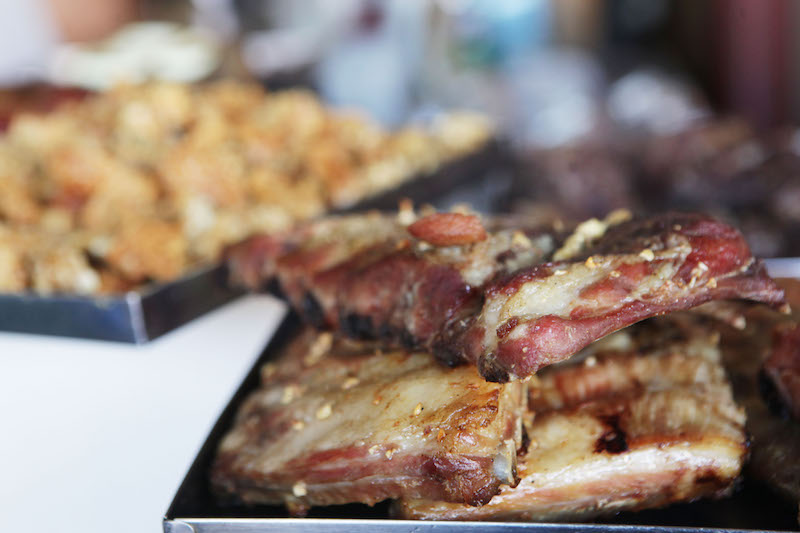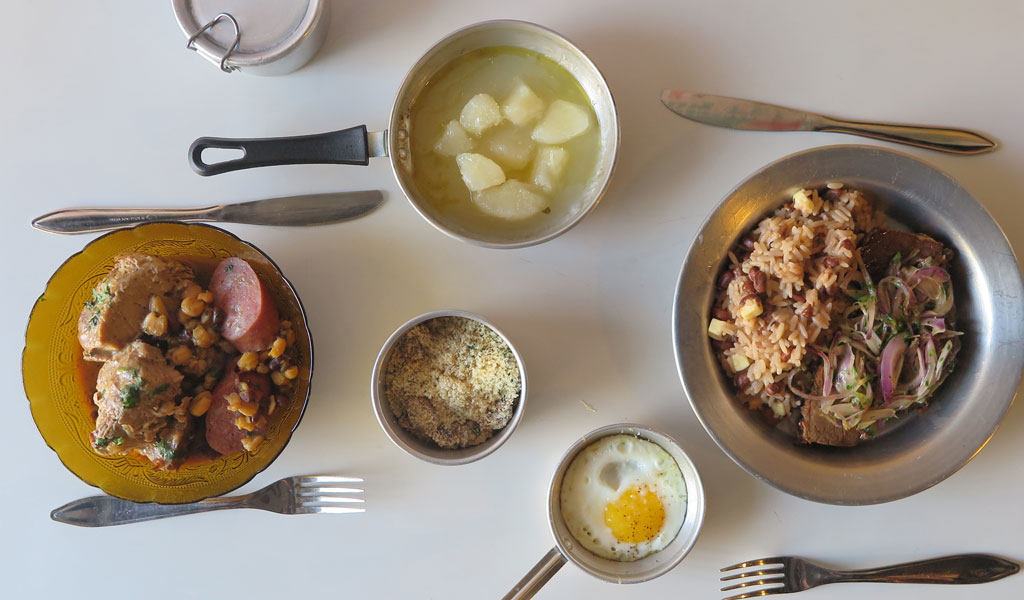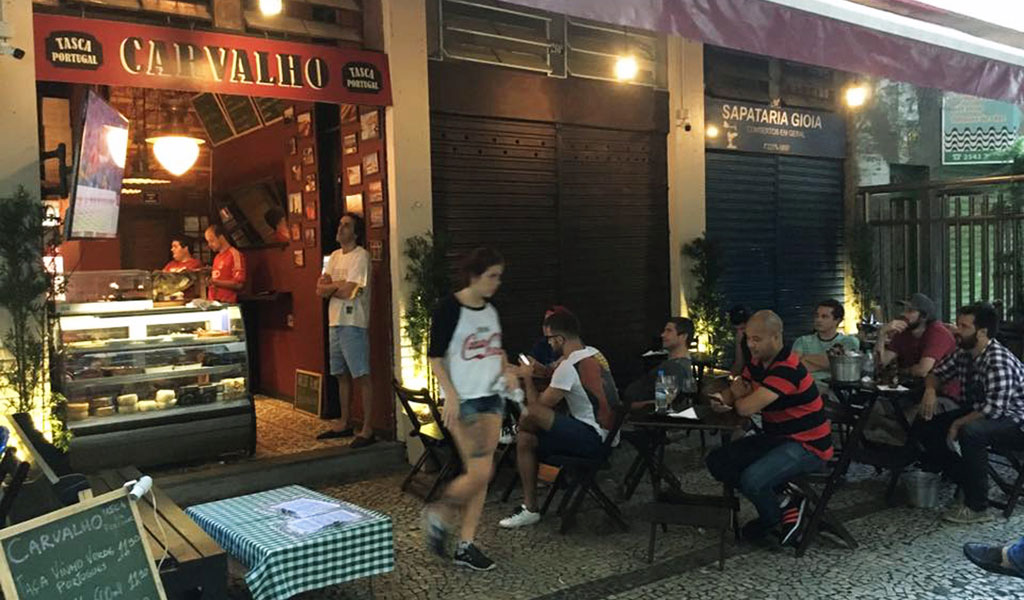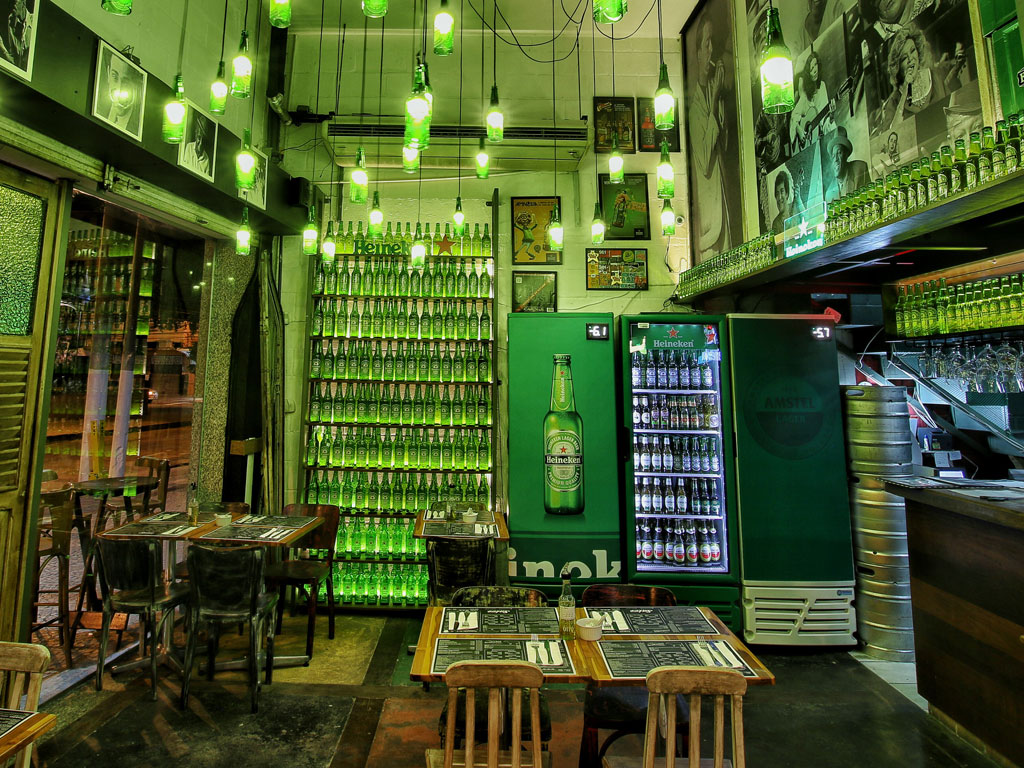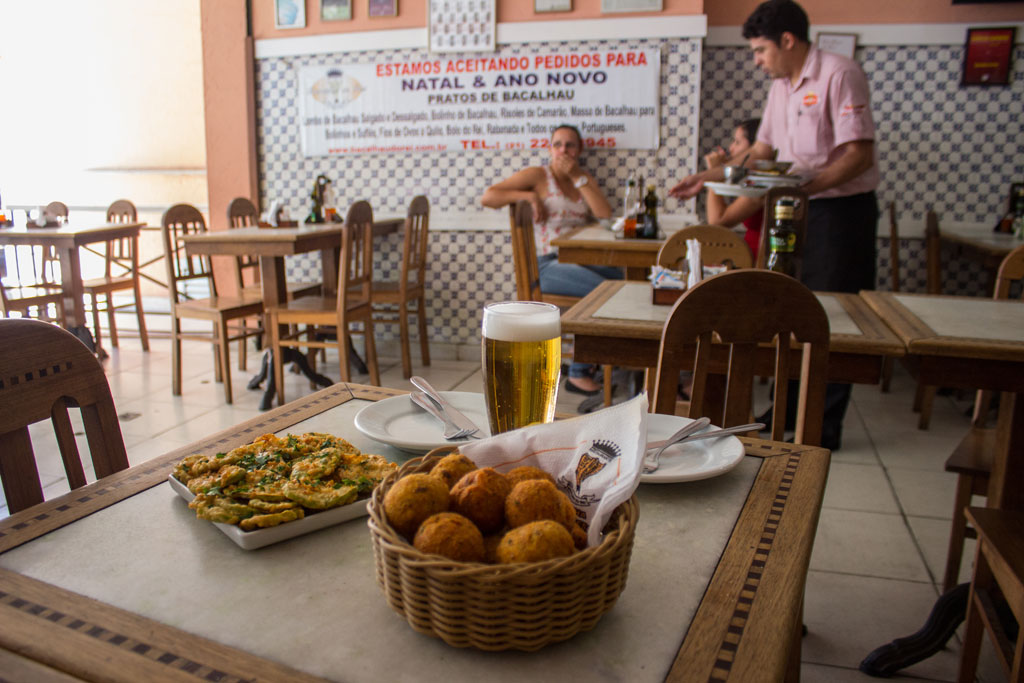We can't find the internet
Attempting to reconnect
Something went wrong!
Hang in there while we get back on track
Search results for "Juarez Becoza"
Rio
Lá na Rosi: Big Chef, Small Kiosk
The sun is already down when the food kiosks at the entrance to the Z10 fishing colony open their doors. It’s evening and we are on Ilha do Governador (Governor’s Island), the largest island in Guanabara Bay and far away from Rio’s tourist spots – the only reason most visitors come to this working-class suburb is to catch a flight at the Rio de Janeiro International Airport. These kiosks are almost all alike: boring food stalls serving bland seafood broths, bad pizzas and standard sandwiches. But six months ago, a new kiosk set up shop, one that was completely different from the others. It’s called Lá na Rosi and serves some of the most amazing street food in Rio.
Read moreRio
Contemporâneo Lapa: Bar Snacks from Afar
Lapa is the heart of bohemian Rio de Janeiro, a place that pulses with samba music and the clamor of bargoers. Local musicians, artists and intellectuals (and tourists, too) flock to this old neighborhood, which during the day is best known for its rich stock of colonial-era architecture and where at night more than 200 bars fight for customers. Almost all the bars offer the same thing: live samba music, cheap beer and bad food. But Contemporâneo Lapa is bucking this trend. The bar is situated on one of the most frenzied blocks in Lapa – it’s brimming with prostitutes and drug dealers (the neighborhood hasn’t completely shed its dubious reputation) as well as tourists and Cariocas chasing a wild night out.
Read moreRio
Bar do Seu Domingos: Suburban Meat Feast
When we talk about the “suburbs” in Brazil, some may imagine the affluent outer boroughs of London, New York or Singapore. But in Rio de Janeiro, they’re nothing like that. Far from its beautiful beaches, Christ the Redeemer and Sugarloaf Mountain, the city’s suburbs are the opposite of tony – they’re where Rio’s working-class people live. Yet the suburbs are where you can find the most authentic carioca soul. They are home to the biggest favelas, the most important samba schools, Afro-Brazilian religious temples, the majority of football fields and, of course, the best botequins, or local bars.
Read moreRio
Kalango: Northeast Vibes
The calango is a tiny lizard commonly found in the hottest, driest and poorest parts of Brazil’s Northeastern countryside, and in popular culture, the calango is also a symbol of hunger. Someone who eats calango is driven to do so because he has nothing else to eat. Thankfully, at Kalango there’s plenty to eat. Kalango (the “K” is for chef Kátia Barbosa, owner also of Aconchego Carioca) is a spartan botequim, or small gastropub, located near downtown that serves the specialties of Brazil’s Northeast states. This comida sertaneja, as it’s called, is very hard to find in Rio.
Read moreRio
Tasca Carvalho: Porto Meets Rio
Portuguese gastronomy is at the core of Rio's botequins, the small, often family-run gastrobars spread all over the city. Traditional botequins offer European food and some unique aspects of Brazilian culture – mix you’ll find only in Rio. That being said, it’s hard to say whether Tasca Carvalho, the brand new Portuguese gastrobar in Copacabana, is a typical botequim. Run by two young Portuguese friends newly arrived from Porto, Tasca Carvalho is not a mix, but 100 percent Portuguese. And that makes it unique in Rio's street food landscape. Perhaps the only indication of Brazilian influence you might find at Tasca Carvalho is in the ambience. The tables and benches, spread all over the sidewalk, follow the carioca rules of informality.
Read moreRio
Salve Simpatia: Across the Bay
Cariocas don’t give much love to Niterói, joking that the only reason to go to this city across Guanabara Bay is for its spectacular view of Rio de Janeiro. But while less busy and far less popular than Rio, Niterói is full of lovely beaches, great museums, excellent restaurants and hundreds of bars. Among the many reasons to visit is Salve Simpatia, a botequim – or small, family-run bar serving snacks to go with drinks – where traditional bar gastronomy mixes perfectly with delicious artisanal burgers, specialty beers and remarkably good music, especially samba. Salve Simpatia (which means something like “Hello, my brother” in Portuguese) opened in 2012 and was known only to locals in the Icaraí area for a while.
Read moreRio
Bacalhau do Rei: Long Live the King
A tourist visiting Rio is very likely to hear mention of Baixo Gávea, or B.G. It’s a very famous square, surrounded by bars and restaurants where young, rich and beautiful cariocas get together. The place is packed almost every night and especially inside the two bars that dominate the bohemian scene there, serving cold draft beer, pizzas and grilled meat. Baixo Gávea is undeniably cool and makes for a good time, but it can also be a bit disappointing if you don’t like crowded places or don’t have much money to throw around. But not to worry: There’s a way to enjoy Baixo Gávea without the unnecessary fuss and frippery – and to eat well while doing it (probably better, in fact, than you would in the more famous restaurants).
Read more